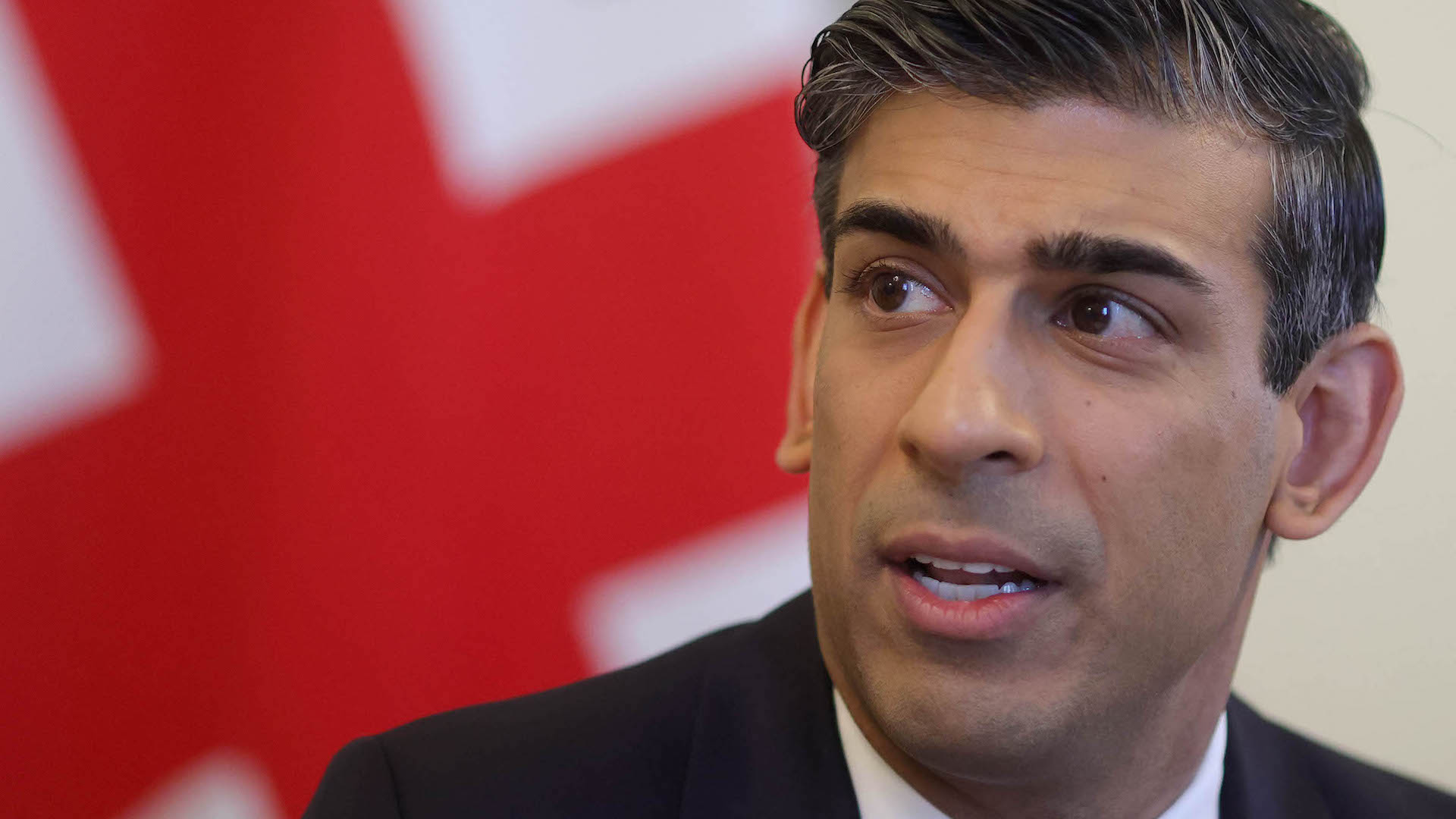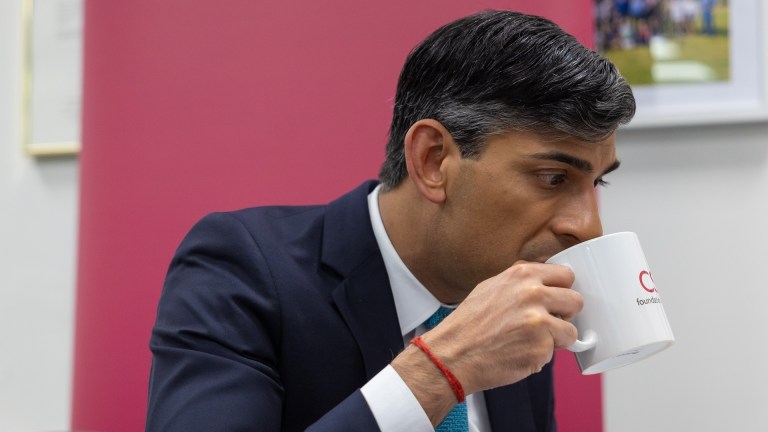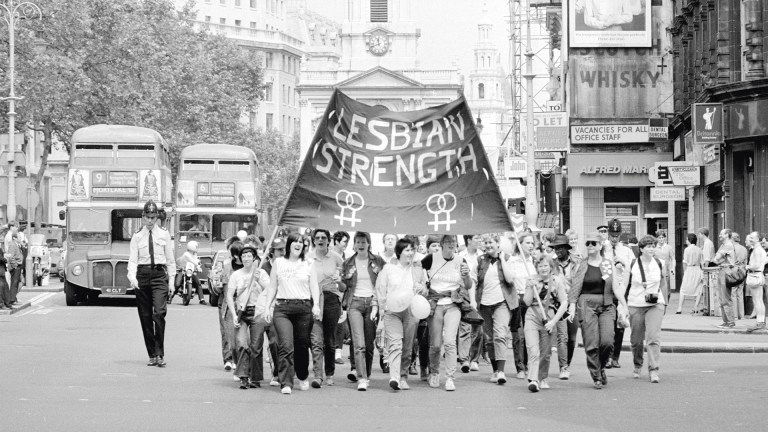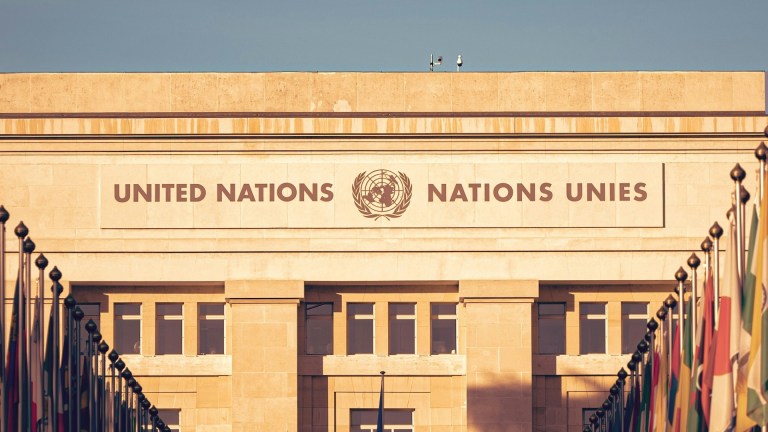“That won’t affect all those on existing benefits. It will come in over time on people who are newly presenting to the welfare system. And that is something I think is the right thing. It is about fairness. It is about making sure that everybody who can work, does work.
“And for everyone who is working hard, we reward that hard work with tax cuts – that is a conservative approach, it is one that I think is right for our country.”
This is not newly announced: ministers have repeatedly stressed their plans to crack down on the benefits system with tougher sanctions and stricter eligibility criteria. The theory behind it is that it will drive more people into work to contribute to the economy.
But charities have warned time and again that this will have the adverse effect of pushing people further away from work, by contributing to worsening mental health and illness because of the stress of navigating an even more difficult disability benefits system.
Tom Pollard, head of social policy at the New Economics Foundation, explained: “This government has the wrong priorities if it’s thinking of giving tax cuts to higher earners at the expense of people already struggling to afford the essentials.
“That further tax cuts could be funded by making it even harder to access social security is not only divisive but it demonstrates a lack of understanding about why people are struggling to work in the first place.”
The number of working-age adults who are out of work because of long-term sickness has been rising since 2019, from around 2 million people to about 2.5 million in summer 2022. This is partly contributed to by long-Covid, NHS waiting times and an ageing workforce.
Pollard added: “Record numbers of people are out of work due to illness and disabilities – we won’t fix that by making their lives even harder. This government should focus on ensuring everyone can at least meet their essential costs, like food and energy, and protecting vital public services like the NHS. This is also necessary to help more people into work in the long run.”
Since the height of the Covid pandemic, disability benefit claims have risen sharply, sparking alarm among ministers. The total number of people on working-age disability benefits has risen by a quarter since April 2019, with around five-sixths of them out of work.
The Office for Budget Responsibility (OBR) has said that the high number of sanctions imposed on unemployment benefit claimants has helped drive the growing number of disability benefit claimants. Instead of saving the government money, tightening the benefits system could mean the taxpayer has to fork out more in the long term.
The Joseph Rowntree Foundation estimated in 2016 that poverty costs the UK £78bn each year, and the figure is likely far higher now. The number of people experiencing the most extreme form of poverty (destitution) in the UK has more than doubled since 2017.
Helen Barnard, director of policy, research and impact at the Trussell Trust said: “We are already seeing shocking levels of hunger and hardship across the UK, with food banks at breaking point. Overwhelmingly, this is caused by problems in the design and delivery of the social security system, with benefit levels set far below what people need to afford the essentials.”
“Between April and September last year food banks in the Trussell Trust network distributed a record 1.5 million emergency food parcels to people facing hardship, with more than half a million of these going to children.
“More and more people are facing impossible decisions and are left with no option but to use a food bank. We expect this winter to be the busiest on record for food banks in the Trussell Trust network.”
Instead of tackling poverty in the UK, the government is currently wasting tens of millions on fighting people who are appealing benefits decisions – only to have the majority of those decisions overturned in favour of the claimant.
The DWP has forked out more than £350m over the last decade in staff costs in an attempt to uphold decisions about personal independence payments (PIP), according to a freedom of information request obtained by The Big Issue.
The vast majority (68%) of these decisions are then overturned in favour of the claimant when the appeal is taken to tribunal. The DWP spent £24.5m on this in 2022 alone.
Anela Anwar, chief executive of anti-poverty charity Z2K, previously told The Big Issue: “The DWP continues to waste tens of millions of pounds of public money trying to defend the indefensible, money that could be far better spent elsewhere.
“And that’s not counting the additional costs to the court system of the appeals, or to the NHS if a lack of income causes someone’s health to worsen.
“Most importantly, DWP’s poor decisions mean months of uncertainty and financial difficulty for disabled people, as they have to not only manage their disability or condition, but also get by on inadequate basic rates of benefit until their appeal is heard.”
The secretary for work and pensions Mel Stride himself admitted this week that higher benefits rates can help people into work through providing a stronger sense of security.
Speaking about his plans for to increase the local housing allowance for low-income renters, he said: “This is really important because this is about both relieving financial pressure, but equally it’s important in terms of getting people into work.”
Stride explained that that is because it is important that people have a “secure place in which they’re living and making sure that where there is work – which is often coincident with higher rentals – that people are able to afford to live in those areas”.
Charities want the government to ensure that people have the security they need to survive and thrive, and that will then lead to more people having the capacity for work, while not wasting government money and public services funds by driving more people into poverty.
Deven Ghelani, the founder of Policy in Practice, posted on X: “A more generous and supportive social security system can help people into work. How? Returning an unforgiving and unsupportive back to work regime creates risk for disabled people. People who may want to explore ways to return to work also don’t want to risk losing the protection from a punitive conditionality and sanctions regime.”
Ghelani said he would like to see more support, less punitive sanctions and conditionality and social security that covers the basics people need to survive.
Barnard added: “We need a social security system that is fit for purpose and that will protect people from hardship. The basic rate of universal credit must be based on an assessment of what people need, and how much these things actually cost, so it at least covers the cost of our essentials.”
Universal credit currently falls £35 short of the money people need to survive each week. In a campaign backed by The Big Issue, the Joseph Rowntree Foundation and Trussell Trust are calling for an ‘essentials guarantee’, so that people can afford the basics at the very least.
Rhiannon Steeds, campaigns manager for The Big Issue, said: “Once again, we’re seeing the government punish the most vulnerable members of society. This news comes at a time when so many are already struggling; 9 million renters are living in poverty right now.
“Instead of inflicting further cuts, the prime minister should be focusing on making our welfare system fit for purpose – starting by making sure it covers the cost of essentials like food and utilities. We’re calling for universal credit payments to be increased to £120 a week for a single adult and £200 for a couple.”
Without the money they need to afford food and keep their homes warm, people are going to face increasing physical and mental illness, pushing them further away from the workforce and into deeper poverty. Rishi Sunak might have promised tax cuts, but the result of his policies to get there could be devastating for British people and the economy.
Will you sign the Big Issue’s petition to increase benefits for the 9 million renters living in poverty?
Do you have a story to tell or opinions to share about this? We want to hear from you. Get in touch and tell us more.









